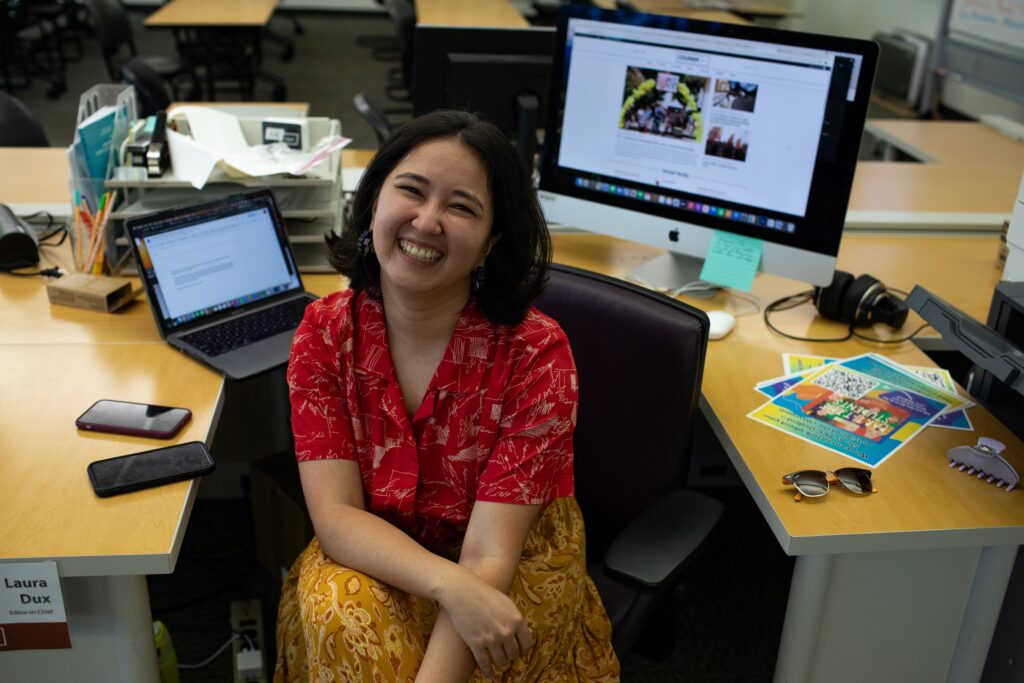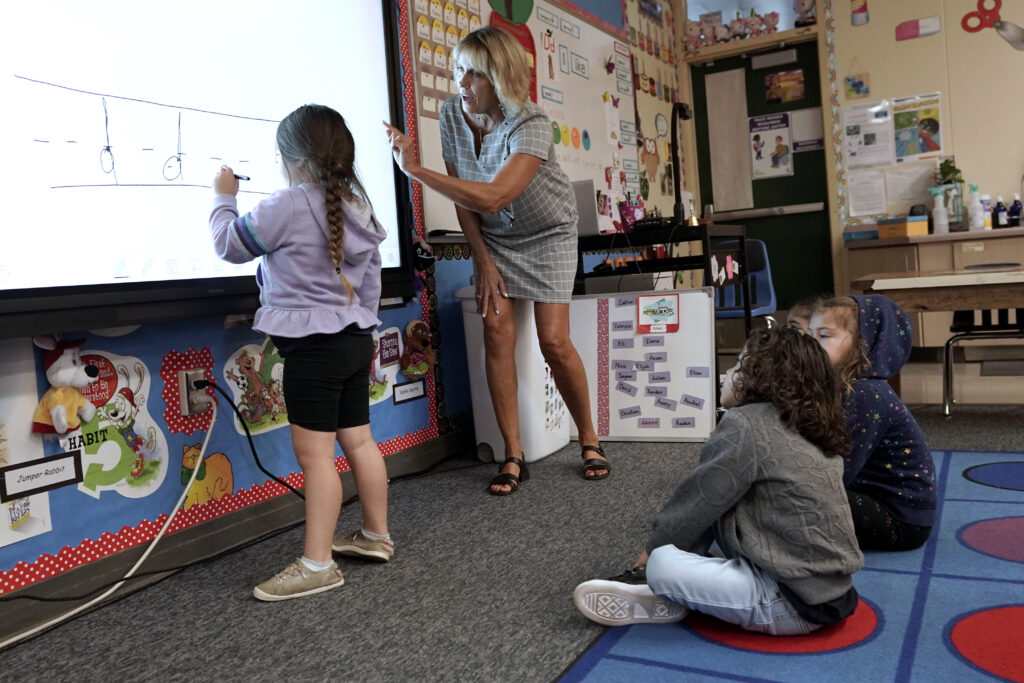
A high school student contemplates an assignment in math class.
Credit: Allison Shelley for American Education
California, along with many other states and nations, has experienced a dramatic increase of student interest in data and computer science careers. Along with the broader tech industry, these fields have been undergoing exponential growth in recent years that’s expected to continue as artificial intelligence (AI), computing platforms and their applications continue to reach every aspect of society.
The U.S. Bureau of Labor Statistics projects 36% employment growth for data scientists by 2031. California businesses and other sectors are the top home for many of these high-paying careers.
It’s the responsibility of our state’s academic systems to educate future data-driven leaders in many areas — tech, finance, business, entertainment, biomedicine and health, climate and sustainability, engineering, law, social welfare, public policy, government and education itself, as well as in innovative approaches to the arts and humanities.
A report recently issued by a work group for the University of California’s Board of Admissions and Relations with Schools (BOARS) concluded that the three most popular high school data science courses being offered in the state do not “even come close to meeting the required standard to be a ‘more advanced’ course” and “are not appropriate as recommended 4th year mathematics courses.”
We applaud the faculty and staff, across the UC system, who helped develop this report and its recommendations. And we’re delighted by the quick response from the UC Office of the President this month, which shared the message with high school counselors and advisers, summarizing the report and explaining additional steps that UC is taking to implement the BOARS recommendations for the 2025-26 academic year.
This is a noteworthy example of the California educational system working well and listening to expert feedback in order to best serve its students. Hundreds of university professors in the state and beyond came out against the rapid adoption of high school data science classes that were being offered as a supposed substitute for advanced algebraic math, or Algebra II. While these introductory data science courses may whet high school students’ appetites, if they are taken at the exclusion of Algebra II, students will not be adequately prepared for science and technology majors in college. We must make sure that the prerequisites for admission to our colleges and universities adequately prepare students to pursue careers in these fields.
Other Perspectives on this topic
This could leave the impression that we don’t support data science — which is far from the truth! We believe that data science is an important discipline to study and a career path for making important contributions in our communities and world. Data science can be a route to increased data literacy, enabling students to distinguish between real information and misinformation and the skills to pursue data-driven approaches to whatever their passions and wherever their careers may lead.
Our data science program at UC Berkeley’s College for Computing, Data Science, and Society is the top-ranked program for undergraduate students in the country. We’ve been active in providing curriculum materials to other institutions in California and around the world, including community colleges and universities. We’ve hosted educators across a broad range of academic institutions, including high schools, at an annual conference on data science education for the last six years.
We know from years of study and practice that learning math is cumulative. In order for California students to be adequately prepared for the science and technology majors they may choose to pursue in college — including data and computer science — the advanced math curriculum in high school is essential. While data science and statistics courses have been rapidly added to high school options and are welcome additions, these courses cannot replace the foundational math content found in Algebra II. We also acknowledge, and encourage, innovative curricula aiming to teach Algebra II via the context of data science, as such courses could be appropriate.
We applaud UC and California decision-makers for their recognition that Algebra II is necessary student preparation for the successful completion of college degrees that require a strong grounding in math, including data and computer science. We welcome opportunities to continue this conversation and promote successful outcomes by ensuring students obtain the math knowledge and skills to pursue careers in science and technology.
•••
Jennifer Chayes is dean of the UC Berkeley College of Computing, Data Science, and Society, and professor of electrical engineering and computer sciences, information, mathematics and statistics.
Jelani Nelson is a professor of electrical engineering and computer sciences at UC Berkeley.
The opinions in this commentary are those of the authors. If you would like to submit a commentary, please review our guidelines and contact us.




